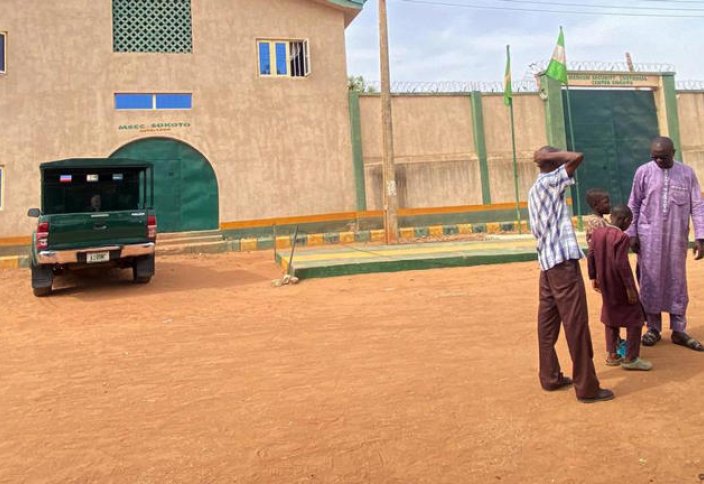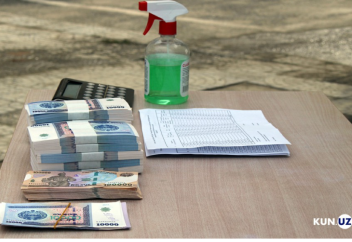|
Что стоит за увеличением числа побегов из тюрьмы в Нигерии?
|

За последние годы тысячи заключенных сбежали из исправительных учреждений по всей Нигерии. Почему это происходит и что можно сделать, чтобы это остановить?
За последнее десятилетие Нигерия стала свидетелем тревожной практики побегов из тюрем, в результате которых тысячи заключенных сбежали из исправительных учреждений по всей стране. Последний инцидент произошел 24 марта, когда 12 заключенных сбежали из центра содержания под стражей средней безопасности в Котон Карфе, штат Коги, на севере центральной части Нигерии. Только шестеро заключенных были пойманы властями и снова взяты под стражу.
Этот инцидент стал четвертым побегом из тюрьмы, зарегистрированным в одном и том же учреждении за последнее десятилетие. Почти 700 заключенных сбежали из тюрьмы, в том числе около 100 заключенных были освобождены в 2012 году, когда террористическая группировка «Боко Харам» штурмовала тюрьму и освободила семерых ее членов, которые там содержались.
Реагируя на последний побег в конце марта, представитель Нигерийской исправительной службы (NCoS) Абубакар Умар сообщил местным СМИ, что заключенные взломали навесные замки в части учреждения, что позволило им сбежать. NCoS заявляет, что с тех пор распорядилась провести полномасштабное расследование обстоятельств инцидента, и добавила, что в исправительных учреждениях страны был проведен аудит безопасности, чтобы предотвратить будущие побеги из тюрьмы.
Yet critics are quick to point out that the recurring pattern of jailbreaks in recent years reflect a systemic problem related to how jails are managed in Nigeria.

As of 2010, over 7,000 people have escaped from prisons across the country with many still remaining at large, according to 2021 statistics compiled by media outlet Al Jazeera. By now, however, the number is certainly much higher as some incidents have involved the escape of several hundred prisoners. In 2022, for example, Boko Haram freed around 600 prisoners while attacking a prison with high-grade explosives and guns near Nigeria's capital, Abuja, while trying to release some of its militants.
Скученность и плохие жилищные условия
Prisons in Nigeria — Africa's most populous country — are notorious for being overcrowded and for having outdated infrastructure, including some structures which date back to the period of British colonial rule. Data in March released by the Nigerian Correctional Services, the agency in charge of the management of the country's prison system, show that two-thirds of inmates are simply awaiting trial. According to statistics provided by the Nigerian Correctional Service in March, out of a total 77,800 inmates across 240 prisons in the country, only 26,898 people have actually been convicted of a crime.
The high number of prisoners awaiting trial has put the spotlight on the country's slow judicial system. The overcrowded conditions, coupled with poor treatment of inmates and lack of security equipment makes the country's prisons prone to attacks, including invasions by armed groups and inmate riots.
But beyond that, Samuel Malik, senior researcher at the African think tank Good Governance Africa, believes the pattern of jailbreaks in the country raises questions about security lapses and insider complicity, partly due to widespread corruption in the prison system.
"Apart from the fact that some of the prisons were built decades ago and were not meant to hold the number of detainees they currently do, a failure of intelligence is also responsible for attacks in our prisons, especially in prisons where high-profile detainees are being held, like former Boko Haram members," points out Malik. "And when I say intelligence failure, I mean both the collection of intelligence reports and the implementation of this intelligence report," he noted.
Malik cited an escape that took place at the correctional facility in Kuje near the country's capital of Abuja about two years ago.
"It was revealed that a detainee had access to a phone with which he communicated with members of the group on the outside. Why was a detainee allowed access to a mobile phone? And why wasn't his communication with external members of the group monitored? All of this points to intelligence failure," he said.
Funke Adeoye, executive director of Hope Behind Bars Africa, a nonprofit promoting criminal justice reform in Nigeria, told DW that there needs to be more cooperation among security agencies when it comes to gathering intelligence and addressing some of the security lapses that make jailbreaks fairly commonplace. "The Nigerian Correctional Service alone may not be able to address this issue effectively. For example, we know that the Department of State Services (DSS) has intelligence capabilities. So, perhaps there needs to be better intelligence coordination among the security agencies, and even with state governments, to effectively analyse these issues," she explained, adding that "when jailbreaks occur, it's the society that's at risk."

Слишком много праздных рук
In 2019, former president Muhammadu Buhari signed the Nigeria Correctional Services Act into law in an attempt to reform the prison system. Apart from changing the name from the "Nigerian Prisons Services" to "Correctional Services," not much has changed when it comes to key issues, especially when it comes to offering inmates proper rehabilitation and reintegration programs.
Adoeye points out that there must be "systems and structures in place" for reform to happen: "We need systems for guidance and counsellling, mental health, vocational training and ensuring proper reintegration once inmates are released from prison. Unfortunately, the Nigerian Correctional Service needs to invest more in the rehabilitation and training of inmates, especially in rural communities," Adeoye added, "as the saying goes, 'idle hands are the devil's workshop.' If inmates are left inside these facilities from morning to night with nothing to do, it creates problems."
Adeoye also advocated for the prison system to be equipped with technology, including a centralized inmate database that is publicly available.
Author: Abiodun Jamiu













